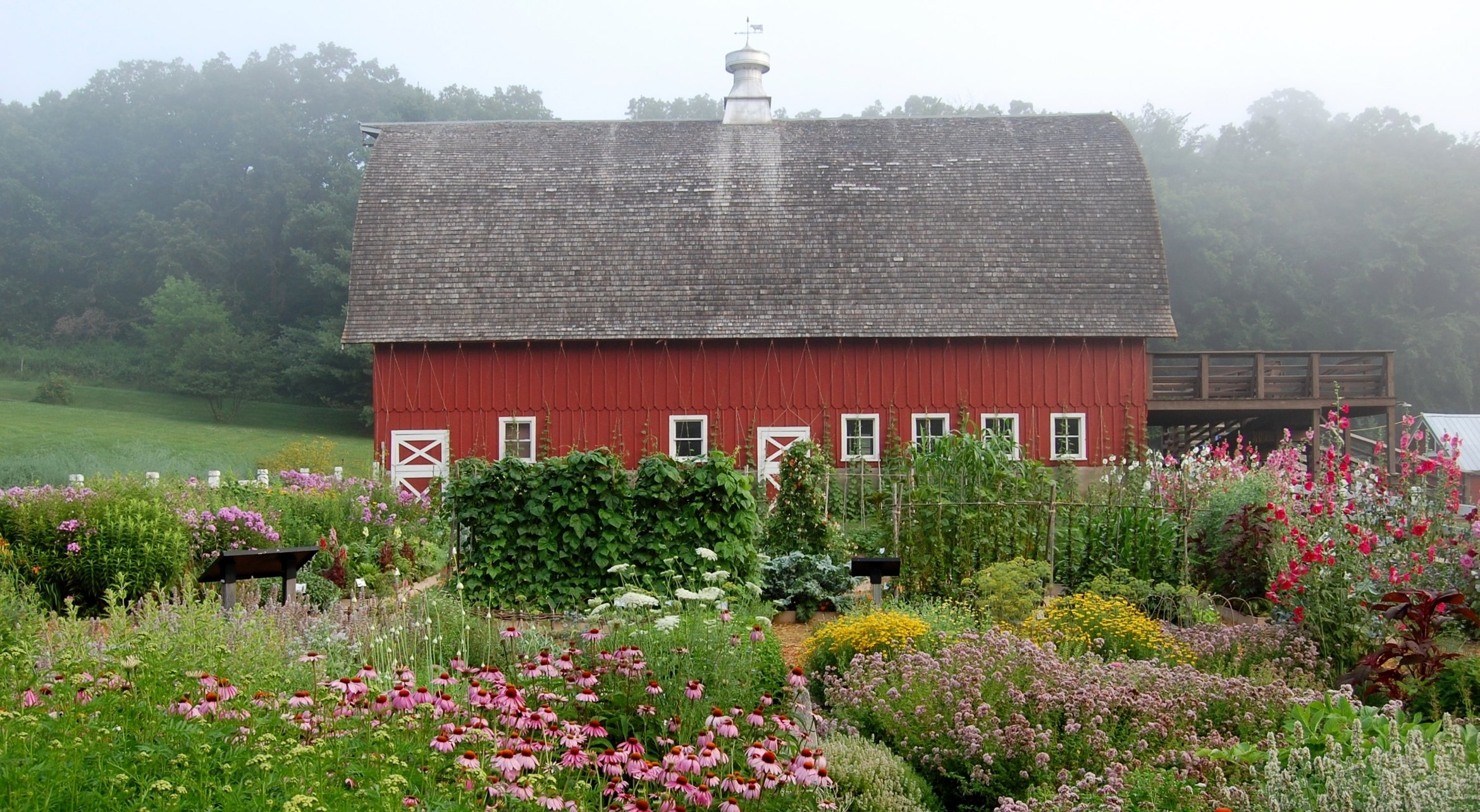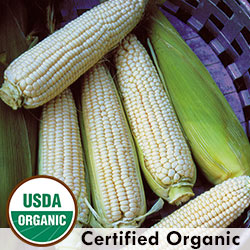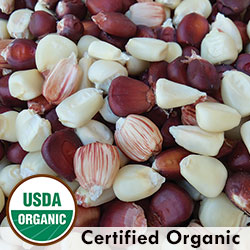Cream of the (Corn) Crop
/Corn is a time-honored staple with countless traditional usages. We've compiled a list of varieties that we've given a big green-thumbs-up. Some are great for eating, some for popping, others for decorating, and even one you can grow in a container!
If you’re looking for a sweet corn that’s perfect for fresh eating and freezing, then go for the gold! This strain was originally cultivated for its long ears and tender kernels. What more could you want?
This variety is unique in many ways! It grows only 3 feet tall with three to six ears and kernels that turn jade-blue when boiled. This sweet corn is perfect for growers who are short on space because it can easily be container grown.
Nathaniel Newman Stowell put years of work into refining this variety before selling it in the early 1800's. Today, it remains a favorite for home and market growers who cherish white sweet corn.
This variety is a great choice for both popping and fall decorating with its gorgeous, deep red kernels. Expect two to four ears on these six feet tall stalks.
This variety is one of the 2014 special edition heirlooms from the Preservation Gardens. Its kernels are white, red, or speckled. This dent corn is best used for cornmeal.
Rumored to have been grown by the Aztecs, the kernels of this dent corn turn jet black at maturity. Use this variety for blue cornmeal.
Also known as Dwarf Rice or Squirrel Tooth, this decorative corn grows adorable four-inch ears that turn bright gold when dried.
Excellent for ornamental use or popping, this variety has blue, pink, red, white, and yellow kernels. This productive grower promises seven-inch-long ears.
This sorghum variety is typically used for broom making and luscious floral arrangements. We offer a wide mix of varieties in a number of hues.
This variety originated in Mexico where growers would grind its kernels for green flour tamales. This sturdy corn is drought resistant with gorgeous emerald green kernels.
Growing tips for corn:
Plant seeds outdoors when the threat of frost has passed. Plant them four inches apart and one inch deep in rows roughly 36-48" apart. Expect seeds to germinate anywhere from 4 to 21 days later. We recommend you plant them in blocks of three to six rows . Corn is a heavy feeder and does best in well-drained fertile soil with a lot of water and sunlight.
Seed saving tips for corn:
Because corn relies on wind to carry pollen from the tassels to the silks, the light pollen grains may travel a few miles before finding and pollinating a silk. Your neighbor’s corn can therefore very easily pollinate yours, making it tricky to save pure seed from your open-pollinated corn. Read more about preventing cross-pollination among corn varieties here.
Browse all of our heirloom, organic, and open-pollinated corn varieties for sale or available for exchange!
___________________________________________________________________
Seed Savers Exchangeis a non-profit organization located in Decorah, Iowa, with a mission to conserve and promote America's culturally diverse but endangered garden and food crop heritage for future generations by collecting, growing, and sharing heirloom seeds and plants.
























